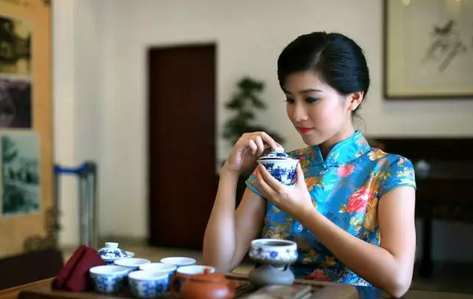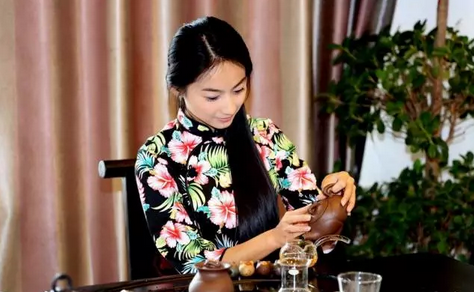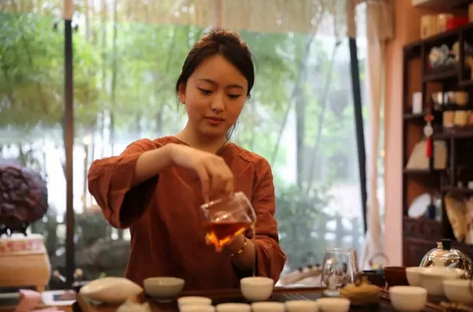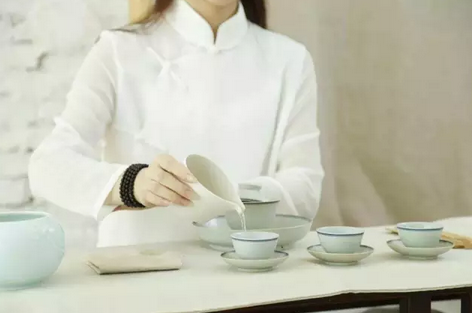Tea has many health care benefits, such as preventing cardiovascular diseases, lowering cholesterol, boosting immunity, and aiding in weight loss. However, it's important to choose the right type of tea based on one's physical condition to achieve these benefits.
Women, in particular, should be aware of their body type and the properties of different teas when drinking tea. So, what should women pay attention to when drinking tea?

Consideration 1: Choose tea based on body type and tea properties
Chinese tea is divided into six major categories: green tea, black tea, yellow tea, white tea, oolong tea, and dark tea. The properties of these teas vary, as do their effects on the human body, so it's important to select the right type of tea based on one's constitution.
Oolong tea is neutral and suitable for most people. Dark tea (such as Pu-erh) is warm and can help reduce greasiness, detoxify meat, and lower blood lipids. It's best to drink it after proper aging for better taste and efficacy. Black tea is warm and suitable for those with cold stomachs, cold hands and feet, weak constitutions, or older individuals. Green tea is cooling and suitable for those with hot constitutions, excessive stomach heat, or high energy levels. It also has good anti-radiation effects, making it ideal for people who work in front of computers. White tea is cooling and has similar benefits to green tea. Yellow tea is also cooling, with effects similar to green tea.

Consideration 2: Prefer ripe tea over raw tea
Both raw and ripe teas have similar weight-loss effects, but raw tea is not suitable for everyone, especially those with cold constitutions. Therefore, it is recommended that women drink ripe tea. For better weight-loss results, the tea should be strong, and ripe tea can be brewed strong without becoming bitter or astringent.

Consideration 3: Avoid tea during menstruation
Women should avoid drinking tea during their menstrual periods. Menstruation causes the loss of some iron, so women should consume iron-rich foods such as spinach, apples, and grapes. Tea contains up to 40% tannic acid, which hinders the absorption of iron by the intestinal mucosa and can form precipitates with iron in food or supplements. Therefore, it's best for women to avoid tea during menstruation.

Consideration 4: Avoid strong tea during pregnancy
Strong tea contains up to 10% caffeine, which can increase urination and heart rate, adding to the burden on the heart and kidneys and potentially leading to pregnancy poisoning, which is harmful to both the mother and the fetus.

Consideration 5: Avoid tea during late pregnancy
Drinking too much strong tea before childbirth can cause insomnia due to the stimulating effects of caffeine. Insufficient sleep before delivery can lead to exhaustion, weak contractions, and even difficult labor.

Consideration 6: Avoid excessive tea during breastfeeding
After giving birth, mothers who wish to breastfeed should avoid drinking large amounts of tea, as the high tannic acid content can inhibit milk secretion.

Consideration 7: Avoid excessive tea during menopause
Women typically enter menopause around the age of 45, experiencing symptoms such as dizziness, fatigue, rapid heartbeat, emotional instability, and sleep disturbances. Excessive tea consumption can exacerbate these symptoms, making it harder to navigate menopause smoothly.

Consideration 8: Adjust tea choices according to seasons
Tea choices should vary with the seasons. In spring, when the body is in a state of renewal, naturally fermented and warm teas like Pu-erh are recommended. In summer, raw tea can help reduce inflammation and heat while boosting energy. In autumn, lightly fermented teas are suitable due to the dry weather. In winter, ripe tea can help improve immunity against the cold.
